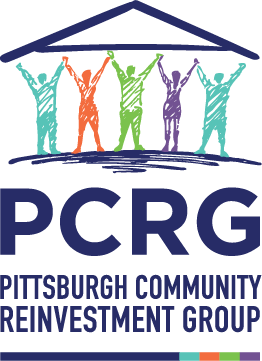Pittsburgh Zoning Updates
Mayor Gainey publicly announced a set of zoning amendments aimed at increasing affordable housing options and addressing the pressing need for more housing development across Pittsburgh as outlined in the housing needs assessment. These changes prioritize inclusive growth and seek to revamp the planning of Pittsburgh’s neighborhoods, particularly in historically underserved areas. PCRG supports initiatives that align with our mission to foster sustainable communities and look forward to providing public comment on critical zoning policies like city-wide inclusionary zoning, parking minimums, minimal lot size, and transit transit-oriented development.
One such change is the clarification of zoning jurisdiction for community homes shaping the future of supportive housing in Pittsburgh, according to WESA. Mayor Gainey’s proposal aims to streamline the planning and review process for establishing group homes, homeless shelters, and halfway houses for up to 10 residents, allowing residents to open more quickly by categorizing them as “by-right” use. This approach is intended to make it easier to create essential housing resources and provide immediate support to vulnerable populations. However, Councilwoman Kail-Smith's counterproposal introduces additional requirements, including city council approval, public hearings, and Planning Commission reviews, to add more oversight in the zoning process.
PCRG is closely following both proposals, they represent a critical opportunity to shape fair housing policies that support well integrated housing options for Pittsburgh residents.
No More Side Yard Sales
Pittsburgh City Council voted to halt the Side Yard Sale program after a debate on who should be eligible to take advantage of the program. The program allowed property owners to purchase city-owned parcels adjacent to theirs for a heavily discounted price. If you are currently in the process of acquiring property through the program, you will not be affected, however, the city will not be accepting new applications until the council decides on eligibility guidelines for the program. Some council members want to adjust participation to bar landlords, or corporate entities from participating in the program. The city is unable to account for how many properties have gone through the program.
County Budget
Allegheny County Executive Sara Innamorato’s 2025 budget proposal introduces a property tax increase intended to support county-wide services, and infrastructure improvements, keep up with inflation and offset depleted federal ARPA monies. The County has not raised property taxes in over 12 years and still does not have a regular property assessment schedule. The County Executive’s proposal to the County Council includes multi-million-dollar investments in county-wide housing initiatives such as home ownership assistance, home repairs, rental assistance and resources for land banks for the reclamation of vacant properties.
PCRG is analyzing the budget proposal and will provide a complete breakdown of funding properties and information to provide public comment to your County Council members.
Downtown Investment
In case you missed it, last week various stakeholders gathered in downtown Pittsburgh for an announcement by Gov. Josh Shapiro on a 10-year, $600 million plan to revitalize downtown with housing, small businesses, and public space improvements through green space and art. Shapiro was joined by local and state elected officials, the Urban Redevelopment Authority (URA), private developers, representatives from Pittsburgh sports teams, small business owners and corporate leaders. Public money has already been allocated towards residential conversation projects for downtown businesses through the URA, as well as tax abatements for developers pursuing projects downtown.
Federal Housing Goals for 2025-2027—GSE’s
PCRG was proud to support our national partner, National Community Reinvestment Coalition’s (NCRC) public comment on the Federal Housing Finance Agency’s (FHFA) proposed affordable housing goals for 2025-2027. Key proposals of the letter include urging Government Sponsored Enterprises (GSEs) — Fannie Mae, Freddie Mac, and Federal Home Loan Banks — to deepen their commitment to affordable housing initiatives in these areas.
Additionally, we applaud NCRC for urging the FHFA’s plan to publish localized data on GSE performance, which would enable community stakeholders to more precisely identify and address housing needs. This data-driven approach has the potential to provide a clearer roadmap for GSEs, community organizations, and policy makers to collaboratively close the affordable housing gap.

